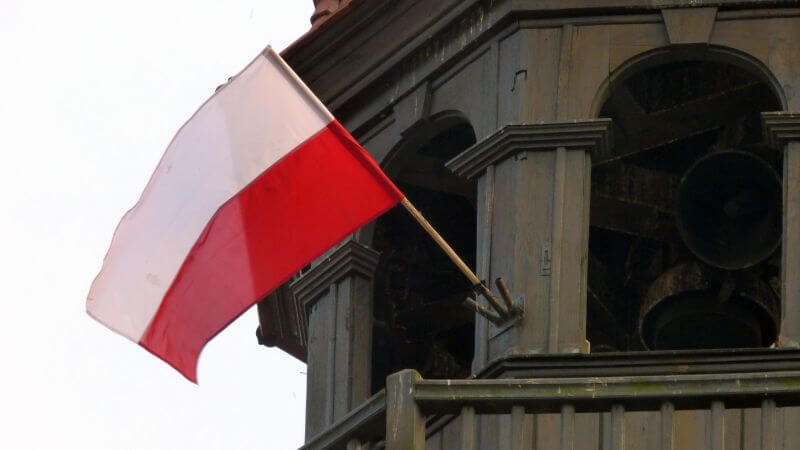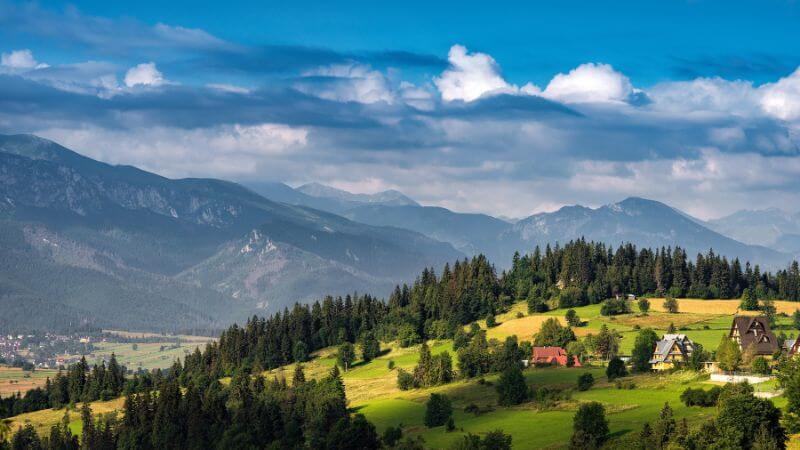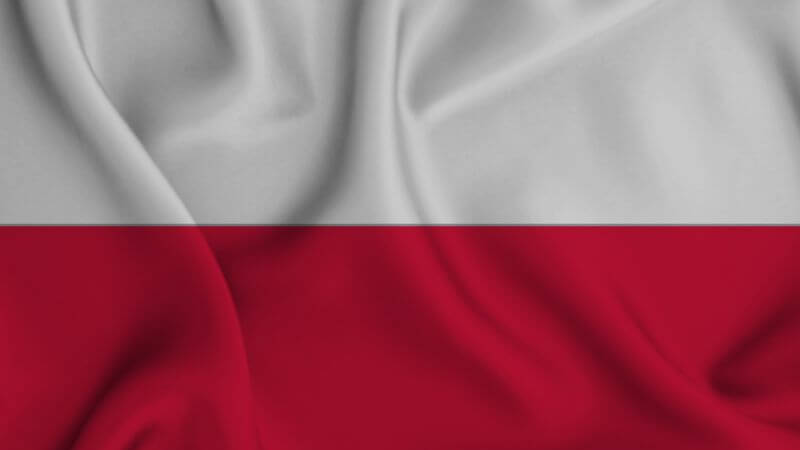If you’re looking for a comprehensive list of Polish last names, your search ends right here! Scroll to find the meanings of some popular Polish surnames and learn more about Poland!
About Polish Culture
Polish culture is rich and diverse, shaped by a blend of history, art, and tradition.
With a strong emphasis on literature, music, and religious heritage, Poland has produced renowned figures like Chopin and Pope John Paul II.
Festivals, such as Krakow’s Wawel Dragon Parade and Easter traditions, celebrate this heritage.
Pierogi, traditional folk dances, and intricate crafts further reflect the vibrant tapestry of Polish culture. Source
Polish Last Names Naming Traditions
Polish surnames often hold meaning and history. Patronymic “ski” and “ska” endings indicate “son of” or “daughter of.”
Occupations like “Kowalski” (blacksmith) also shape names. Toponyms link to regions, like “Mazur” (Mazovia). Many signify nature, such as “Nowak” (new).
Historical events or attributes influence names, revealing Polish heritage, occupation, and connections to place or lineage. Source
Popular Polish Last Names With Meanings
- Nowak – “New” or “Novice” – Most common Polish surname.
- Kowalski – “Blacksmith” – Indicates a blacksmith profession.
- Wiśniewski – “Cherry tree” – Derived from a tree name.
- Wójcik – “Shepherd” – Indicates a shepherd or herder.
- Kaczmarek – “Innkeeper” – Suggests a person who owned an inn.
- Lewandowski – “Linden tree” – Derived from a tree name.
- Adamski – “Son of Adam” – Patronymic surname.
- Szymański – “Simon’s son” – Patronymic form of Simon.
- Woźniak – “Wagoner” or “Cartwright” – Suggests a person working with wagons or carts.
- Dąbrowski – “Oak tree” – Derived from a tree name.
- Jankowski – “John’s son” – Patronymic form of John.
- Włodarczyk – “Wheelwright” – Indicates a person who made wheels.
- Piotrowski – “Peter’s son” – Patronymic form of Peter.
- Sikorski – “Falcon” – Derived from a bird name.
- Nowicki – “New” or “Novice” – Variant of Nowak.
- Kowal – “Blacksmith” – Similar to Kowalski.
- Kwiatkowski – “Flower” – Derived from a plant name.
- Krajewski – “Land” or “Country” – Suggests a person associated with a particular region.
- Mazur – “Mazovian” – Indicates someone from the Mazovia region.
- Czarnecki – “Oak tree” – Derived from a tree name.
- Grabowski – “Tree branch” – Derived from a tree name.
- Pawlak – “Paul’s son” – Patronymic form of Paul.
- Michalski – “Michael’s son” – Patronymic form of Michael.
- Jaworski – “Miner” – Indicates a person involved in mining.
- Wawrzyniak – “Laurel” – Derived from a plant name.
- Zając – “Hare” – Derived from an animal name.
- Król – “King” – Indicates a noble or regal connection.
- Wojciechowski – “Warrior” – Indicates a warrior or soldier.
- Górski – “Mountain” – Suggests a person from a mountainous region.
- Tomaszewski – “Thomas’s son” – Patronymic form of Thomas.
- Nowacki – “New” or “Novice” – Variant of Nowak.
- Sikora – “Titmouse” – Derived from a bird name.
Rare Polish Last Names With Meanings
- Szewczyk – “Shoemaker” – Indicates a person who made shoes.
- Makowski – “Poppy” – Derived from a plant name.
- Kaczmarczyk – “Innkeeper” – Variant of Kaczmarek.
- Malinowski – “Raspberry” – Derived from a plant name.
- Orłowski – “Eagle” – Derived from an animal name.
- Janowski – “John’s son” – Patronymic form of John.
- Jasiński – “Jasinski” – “Jasinski” – Derived from a personal name, Jas or Jasio.
- Wróbel – “Sparrow” – Derived from a bird name.
- Maliszewski – “Apple tree” – Derived from a tree name.
- Nowosielski – “New family” – Suggests the founding of a new family.
- Wilk – “Wolf” – Derived from an animal name.
- Marciniak – “Martin’s son” – Patronymic form of Martin.
- Lis – “Fox” – Derived from an animal name.
- Kwiatkowska – “Flower” – Derived from a plant name.
- Janik – “Johnny” – Diminutive form of John.
- Dudek – “Young oak tree” – Derived from a tree name.
- Sikorska – “Falcon” – Feminine form of Sikorski.
- Kaczor – “Drake” – Derived from an animal name.
- Wesołowski – “Joyful” – Suggests a cheerful or happy disposition.
- Piotrowska – “Peter’s daughter” – Feminine form of Piotrowski.
- Kruk – “Raven” – Derived from an animal name.
- Romanowski – “Roman’s son” – Patronymic form of Roman.
- Lisowski – “Fox” – Variant of Lis.
- Zając – “Hare” – Variant of Zając.
- Tomaszewska – “Thomas’s daughter” – Feminine form of Tomaszewski.
- Sobczak – “Stubborn” or “Persistent” – Indicates a tenacious personality.
- Walczak – “Fighter” – Suggests a combative or determined nature.
- Górska – “Mountain” – Feminine form of Górski.
- Krupa – “Grain” – Derived from a crop name.
- Nowakowski – “New” or “Novice” – Variant of Nowak.
- Wojtaszek – “Consolation” – Derived from a personal name, Wojtasz.
- Jankowska – “John’s daughter” – Feminine form of Jankowski.
- Adamczyk – “Son of Adam” – Variant of Adamski.
- Chmielewski – “Hop” – Derived from a plant name.
- Sikora – “Titmouse” – Variant of Sikora.
- Gajewski – “Groves” – Suggests a person from wooded areas.
- Bednarczyk – “Cooper” – Indicates a person who made barrels or casks.
- Wrona – “Crow” – Derived from an animal name.
Poland Trivia!
Question 1: What is the capital city of Poland?
Answer: Warsaw.
Question 2: Which famous composer and pianist was born in Poland and is known for his romantic compositions?
Answer: Frédéric Chopin.
Question 3: Which river runs through the city of Kraków in Poland?
Answer: Vistula (Wisła) River.
Question 4: What is the traditional Polish dumpling often filled with ingredients like potato, cheese, meat, or fruit?
Answer: Pierogi.
Question 5: Which Polish astronomer is famous for developing the heliocentric model of the solar system?
Answer: Nicolaus Copernicus.
Question 6: What is the name of the famous salt mine located near Kraków that has been in operation for centuries?
Answer: Wieliczka Salt Mine.
Question 7: Which medieval Polish ruler founded the Polish-Lithuanian Commonwealth and is known for his promotion of religious tolerance?
Answer: King Casimir III the Great.
Also Read: Popular Australian Last Names 2023
Tinydale is on YouTube, Click here to subscribe for the latest videos and updates.
Follow Us: Facebook | Instagram | Twitter | Youtube | Pinterest




